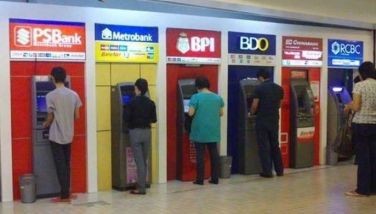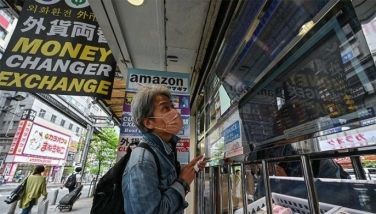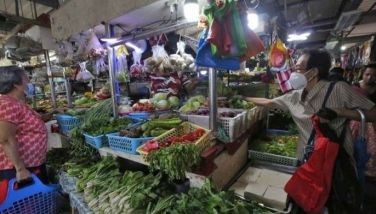Basilio returning to Manila

Antonio I. Basilio is the outgoing Resident Representative of the Manila Economic and Cultural Office (MECO) in Taipei. A career diplomat specializing on economic affairs, Tony has done a superb job of helping transform MECO into a professional organization which culminated in its certification as an ISO 2001 compliant organization (which should be implemented in DFA) in 2008 and its selection as Outstanding Foreign Representative Office by the General Chamber of Commerce of Taiwan in 2006 along with the US and German Representative Offices. He tells me that MECO is now more customer oriented – able to issue visa on the same day and first to develop a Machine Readable Visa (MRV) with photo and enhanced security features which DFA is considering adopting for their own system.
His report, “A Decade of Change: In the Service of Philippine-Taiwan Relations” which details this transformation and makes a good case for giving serious attention to Taiwan’s importance as an economic partner. I was surprised to know that Taiwan has been giving us assistance in developing hybrid corn adapted to Philippine conditions and in upgrading our weather forecasting capability including the installation of 15 automatic weather stations and a Doppler radar facility. Too bad they were not yet fully operational when Typhoon Conson hit Manila. These projects are just part of the benefits from the more than 20 cooperation agreements in areas including agriculture, aquaculture, science and technology, education, direct hiring of labor, anti-drug and anti-money laundering and of course trade and investments.
I asked him to be my guest columnist below so that he can expound on his views on RP-Taiwan relations. Some spokesman in NEDA recently gave a negative outlook because of the recently signed Economic Cooperation Framework Agreement (ECFA) between China and Taiwan.
Warming China-Taiwan relations are good for the Philippines
It has become a given that China’s mega-economy will casts a giant shadow over the economies of East Asia long into the future. It is easy therefore for policy makers to overlook the significance of Taiwan, a small island of 23 million hard working and highly educated people, under this scenario. Yet it may hold the key to how the region’s economic future turns out for three reasons.
The most obvious reason is that Taiwan represents the other side of cross-strait relations which, just a couple of years ago were so strained to the point that it was considered a tinderbox that could spark a major conflict that may involve the US, Japan and China. If this were to happen, the economic well being of East Asia and its ongoing integration would have been severely jeopardized. This threat still remains today but has diminished, thanks in large measure to the pragmatic policies that the Ma Ying-jeou’s administration has adopted and China’s positive response. That approach aims to normalize commercial relations with China while setting aside the issue of Taiwan’s status. The hope is that at some point in time, the peaceful resolution of this issue will become achievable. Both sides have their respective agenda towards wanting to improve cross-strait relations. A recognition of this fact and constructive responses by other economies in the region to this ongoing process would certainly encourage both sides to stay the course. The point is, peace and stability in the region is good for everyone, and Taiwan is a key player in this equation.
The second reason is the significant role that Taiwan plays in the global manufacturing supply chain for ICT products. Technology, the mobility of people and capital, and trade liberalization has created a solid East Asian production network. At the center of this is China, which has become the world’s factory for mass production. Taiwanese companies are significant players in getting this global factory humming. Hon Hai, the world’s largest manufacturer of consumer electronics and China’s largest exporter, employs 800,000 in China, is a Taiwanese company that makes Apple I-pods, HP computers, and Sony Playstations. Taiwanese companies comprise the world’s largest supplier of contract computer chips as well as in the design and manufacture of LCD panels, memory, networking equipment, and consumer electronics. Taiwan is a key node in the global supply chain for electronics and without its innovative driving force, East Asia would not be as important a player in this business as it is now.
The third reason is that China’s and Taiwan’s economies are becoming more integrated. Taiwanese companies have invested upwards of US$150 billion in China. Almost one million Taiwanese businessmen live in the Mainland. And China is now Taiwan’s largest import and export partner, accounting for about 39 percent and 12 percent of Taiwan’s exports and imports, respectively, in 2008 (including Hong Kong). These figures are growing rapidly as both economies become ever more interdependent. This interdependence will be further boosted by the signing of the Economic Cooperation Framework Agreement and the elimination of remaining restrictions on investments and banking, among others.
How can the Philippines benefit from these developments? To begin with, we should correct the impression that this warming trend will not be good for us. Those who say so argue that ECFA will lead to more Taiwan factories closing and moving to China thus leaving our OFW’s jobless. That tourists will now bypass the Philippines and that all investments will now flow towards China.
Our experience on the ground in the last six months has been totally the opposite. Deployment of workers has actually been increasing this year. PILMAT President Jackson Gan in fact complains that talk of jobs moving out has scared off applicants that many openings have gone begging. Despite our initial trepidation, tourist arrivals are growing at a 27.4- percent clip in the first half of the year. Our successful participation in this year’s Taiwan International Food Fair with booked orders of US$12 million points to the growing sophistication of Taiwanese consumers. And Taiwanese manufacturers including those in footwear, hardware and hand tools – who were part of the first wave to move to the Mainland – are now moving out and scouting for locations in Vietnam, Indonesia, Cambodia and the Philippines.
The simple explanation why these dire predictions have not materialized include the fact that as the global economy recovers and as Taiwan is now able to leverage its proximity to China, the Taiwanese economy has benefitted tremendously. The more income – the more consumption, the more travel. Taiwanese manufacturers who should have moved to the Mainland to take advantage of low labor costs are already there. In fact many are now moving out because of rising manufacturing costs in the Mainland.
Some manufacturers will of course move to China if only to be closer to their customers. But many more will stay or come back. The development of core technology and cutting edge products will remain in Taiwan and will further expand. In those areas where Taiwan currently is competitive with China such as petrochemicals, the early harvests of Taiwanese products to be accorded preferential treatment under ECFA are meant to preserve this competitiveness.
Taiwan aspires to be the operational hub for multinationals particularly those that while China-centric, have operations throughout the region. With direct flights and cross-strait banking and financial transactions now allowed, Taiwan can leverage its cultural affinity with its sophisticated financial system, excellent research and development capability, and efficient logistics to be the location of choice for these multinationals. Since Taiwan will not be able to fill the skills gap locally, there will be plenty of opportunities for skilled Filipinos for jobs higher up the value chain.
How should the Philippines respond to be able to take full advantage of these opportunities? Well first off, I believe that Taiwan deserves to be given the importance in the mindset of our policy makers as befits a trading partner, tourist market, investment source and foreign labor market that has consistently been within the Philippine’s top eight in these categories. This inevitably filters down to how we manage our relations with Taiwan which includes such aspects as the level and extent of interaction between our respective officials and businessmen, the resources that can be devoted to promoting our exports and our desirability as an investment destination, the entering into mutually beneficial cooperation agreements and the quality of our representation in Taiwan - all of which are possible within the spirit of our One-China policy.
Taiwanese manufacturers who have operations in China see the Philippines as a good back up location for its China manufacturing operations, as a competitive location for design and prototyping, and for customer support and business process outsourcing particularly as they move from being OEM to Original Design/Own Brand manufacturing.
- Latest
- Trending



























